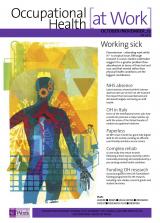October/November 2013 (vol. 10/3)
ContentsFeaturesNewsLegal
NewsResearch DigestResearch PlusCPD
Research Plus
Smoking cessation
Two Cochrane systematic reviews find evidence to support the use of telephone counselling1(77 controlled trials were included, covering over 85,000 participants) and interventions delivered by nurses2(49 studies, more than 17,000 participants) to help people quit smoking. Both reviews include workplace settings. For smokers contacting helplines (nine studies, 24,000 participants), the meta-analysis risk ratio (RR) for quitting in those randomised to receive multiple sessions of proactive counselling is 1.37 (95% CI 1.26–1.50). Telephone counselling not initiated by a call to a helpline (51 studies, 30,000 participants) is also effective (RR = 1.27; 95% CI 1.20–1.36) and there is some evidence that more calls lead to a greater chance of quitting. A meta-analysis of 35 studies comprising more than 17,000 participants demonstrates that nurse-led interventions giving advice, counselling and/or quitting strategies, are better than control or usual care in increasing the likelihood of quitting (RR 1.29; 95% CI 1.20–1.39). The evidence is strongest for longer-term structured, rather than brief, interventions and those provided by nurses whose main role is health promotion or smoking cessation, and weakest when delivered as part of a health check.
Occupational Health at Work October/November 2013 (vol. 10/3) pp41



